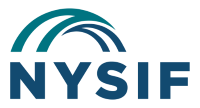Sends SEC Letter Supporting Measures to Protect Investors and Increase Transparency of Private Equity, Venture Capital, and Hedge Funds
NYSIF announced today that it has sent a letter to the Securities and Exchange Commission (SEC) in support of the SEC's proposal to strengthen private funds regulation, including private equity, venture capital, and hedge funds. If adopted, the proposal would require private fund advisers to provide investors greater transparency into fees, expenses, and fund performance and prohibit them from engaging in certain activities that harm investors.
"Over the past decade, private funds have experienced explosive growth as institutional investors have invested heavily in them," said NYSIF Executive Director & CEO Gaurav Vasisht. "But as investor demand has soared, private market regulation has failed to keep pace, producing a competitive imbalance favoring fund advisers over investors that distorts markets. The SEC proposal takes an essential step to leveling the playing field and providing investors the information necessary to make informed investment decisions."
Private funds control approximately $18 trillion in gross assets under management, with private equity assets alone doubling in size in less than five years. The growth is driven, in part, by institutional investors, such as state and local pension funds, university endowments, foundations, and non-profits. With such investments expanding, private funds will continue to play an increasingly important role in the everyday lives of New Yorkers, whether they are saving for retirement or funding college, and touch every aspect of the real economy.
However, as detailed in NYSIF's letter, some investors are at a severe competitive disadvantage. To gain entry to a fund, they often must accept one-sided contractual provisions, such as those requiring investors to waive adviser fiduciary duty or pay fees for unperformed services. Investors also must contend with a lack of consistent, standardized, and reliable information on the total cost of their investment and fund performance and navigate an opaque process of entering into bespoke "side letters" with undisclosed preferential terms for select investors.
To address these challenges, NYSIF strongly supports the SEC's reform measures, which:
- Require registered private fund advisers to provide standardized quarterly statements to investors detailing all fees, expenses, and fund performance
- Mandate advisers to obtain an independent audit annually and upon a fund's liquidation for each fund they advise
- Prohibit advisers from engaging in activities contrary to the public interest, including requiring investors to waive the adviser's fiduciary duty or charging fees for unperformed services
- Disallow advisers from providing preferential terms to certain investors regarding redemption rights and information about portfolio holdings and exposures.
"Private fund markets suffer from uneven bargaining power and informational asymmetry that harm investors," Vasisht said. "The SEC proposal will spur competition, promote market efficiency, and help institutional investors like NYSIF meet their fiduciary obligations."
